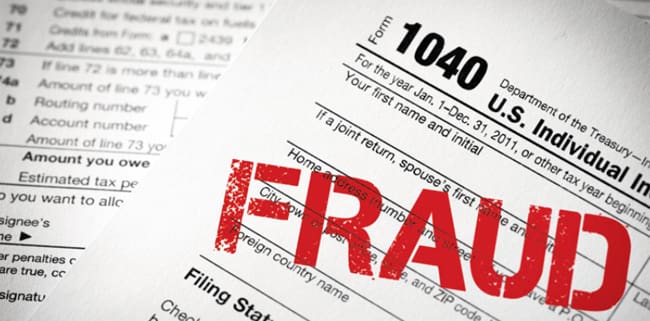What Is the Difference between Criminal Tax Evasion and Civil Tax Penalties?
For several reasons, often the IRS will first pursue a criminal tax fraud suit before pursuing a civil tax fraud suit. According to the IRS’s own Tax Crimes Handbook, a criminal tax fraud conviction “carries the most severe penalty of the criminal tax offenses.”
Civil tax fraud and criminal tax fraud have different burdens of proof. The IRS carries a “clear and convincing” evidentiary standard for civil tax fraud. (This is otherwise known as a “preponderance of the evidence” standard). By contrast, criminal tax evasion requires proof “beyond a reasonable doubt”—which is a higher evidentiary standard. In other words, the government must prove “more” to show criminal tax fraud than civil fraud.
Civil tax fraud and criminal tax fraud also have different associated penalties. There are several categories of civil tax fraud—for example, there is the fraudulent failure to file a return, accuracy-related penalties under IRC, spousal liability under IRC, and the fraudulent tax return for, e.g., failing to report income on your return and failing to pay tax. Each of these has different associated penalties. For instance, the penalty for fraudulently failing to file a tax return is 15% of the net tax due for each month (up to five months), with a maximum penalty of 75% of the unpaid tax. Similarly, the penalty for filing a fraudulent tax return (e.g. failing to report income) is 75% of the underpayment amount.
The penalties for criminal tax evasion are steeper. Under code 7201, a taxpayer found guilty of willfully attempting to evade tax (or its payment) could face a fine of $100,000 ($500,000 for a corporation) plus five years of imprisonment. Similarly, if a taxpayer is found to have willfully failed to pay tax, file a return, keep sufficient records, etc. he or she may face a penalty of $25,000 ($100,000 for a corporation) plus one year in prison.
Moreover, civil tax fraud and criminal tax fraud have different statute of limitations. For civil tax fraud, there is no statute of limitations, and the tax may be assessed at any time. By contrast, there is a criminal statute of limitations, but it applies only to the prosecution of the crime—the actual tax evasion—not the assessment of the tax owed. Typically, the statute is three years after the taxpayer commits the offense. But there are certain, specified carved out offenses for which a six-year statute of limitations applies.
Finally, different defenses are available for civil tax fraud and criminal tax fraud. When a civil suit for tax fraud follows a criminal proceeding for tax fraud, the doctrine of “collateral estoppel” may apply. Under this legal theory, provided certain technical requirements are met, once an issue is decided in one proceeding, it may not be retried again in a second proceeding.
This doctrine may be helpful to either the government or the taxpayer, depending upon the order of the civil/criminal proceeding and the outcome of the first case.
Consider first a criminal proceeding followed by a civil proceeding. If the government wins the criminal tax evasion suit, the taxpayer generally is “collaterally estopped” in the second (civil) proceeding from contesting that he committed fraud. Why? Because the government already proved fraud “beyond a reasonable doubt” and for the civil suit it needs even less evidence than that (requiring only “clear and convincing” evidence).
Alternatively, suppose the taxpayer is acquitted of criminal tax evasion in the first suit. Does collateral estoppel help the taxpayer? Unfortunately for the taxpayer, no, it does not. The first suit showed conviction was not provable “beyond reasonable doubt.” It remains to be seen in the civil suit whether it can be established using the lower evidentiary standard of “clear and convincing evidence.”
Now consider the reverse order of the proceedings, with the government first bringing a civil suit and losing—and then tries to bring a criminal suit for tax fraud. Does collateral estoppel help the taxpayer? It may; the taxpayer may attempt to collaterally estop the government in the second (criminal) proceeding from asserting the existence of fraud. In other words, under this scenario the doctrine of collateral estoppel helps the taxpayer.
In sum, the differences between a criminal and a civil suit are huge. It is best to speak with a qualified tax attorney, like one of the partners at Milikowsky Tax Law, to help you walk through these important nuances before the situation gets out of hand.



